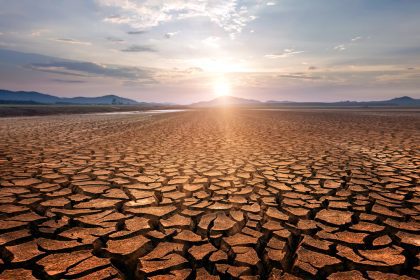Rapper Ludacris recently stirred online conversations by fulfilling a unique bucket list item: drinking glacier water while in Alaska, USA Today reported. On Aug. 26, the Grammy-winning artist shared a captivating video of himself against the stunning backdrop of the Last Frontier. During his visit for a concert, Ludacris seized the opportunity to sample what he described as the purest form of water directly from a glacier.
“Here we go!” Ludacris excitedly declared in an Instagram video before dipping his empty water bottle into the pristine glacier water. His reaction—”Oh my God!”—quickly went viral, garnering over 1.9 million likes.
“Water so good it tastes like GOD made it. Well, because he did,” the Fast and Furious franchise actor humorously captioned the post. The playful moment resonated with fans and fellow celebrities alike, including actor O’Shea Jackson Jr., who jokingly questioned if Ludacris had been monitored after his adventurous sip.
Environmental and social implications
While Ludacris’s glacier water experience was lighthearted, it also lends itself to a larger conversation about the significant issues surrounding water rights, environmental racism and the impact of climate change. The contrast between the luxury of sipping glacier water and the severe water crises faced by marginalized communities underscores profound disparities in environmental justice.
In the United States, water crises like the one in Flint, Michigan, exemplify the urgent need for systemic changes in water management. Flint has faced a prolonged and devastating water contamination crisis, with lead poisoning affecting thousands of residents due to inadequate infrastructure and systemic neglect. This crisis starkly contrasts with the ease of accessing pristine glacier water, underscoring inequalities in water access and safety.
Globally, the melting of glaciers due to climate change exacerbates water scarcity. Glaciers are crucial sources of freshwater for many regions, and their rapid retreat threatens to diminish water supplies for millions of people. Ludacris’s glacier water adventure serves as a poignant reminder of the changing climate and its impacts on global water availability.
Expert insights on drinking glacier water
Although Ludacris’s glacier water experience was enjoyable, it underscores important considerations regarding the safety of drinking untreated water from natural sources. Experts caution against consuming wild water without proper testing for contaminants. Risks include Giardia infection, a waterborne disease that can cause gastrointestinal issues such as diarrhea and cramps.
The Centers for Disease Control and Prevention, or the CDC, advises against drinking untreated water from outdoor sources. However, glaciologist Martin Truffer from the University of Alaska reassured viewers that glacier meltwater is among the cleanest available.
“He’s totally fine,” Truffer explained. “It’s sort of understandable that somebody would be concerned about just drinking untreated water, but if you drink water from a melt stream on a glacier, that’s about the cleanest water you’ll ever get.”
A broader perspective
Ludacris’s glacier water adventure, while joyful, underscores broader issues of water rights, environmental justice and climate change. As glaciers continue to shrink and water sources become scarcer, it’s crucial to address the disparities in access to clean water and the environmental policies affecting marginalized communities. The contrast between the ease of accessing glacier water and the severe water crises like Flint’s serves as a stark reminder of the need for advocacy and action to ensure equitable access to safe and clean water amidst the challenges posed by a changing climate.















